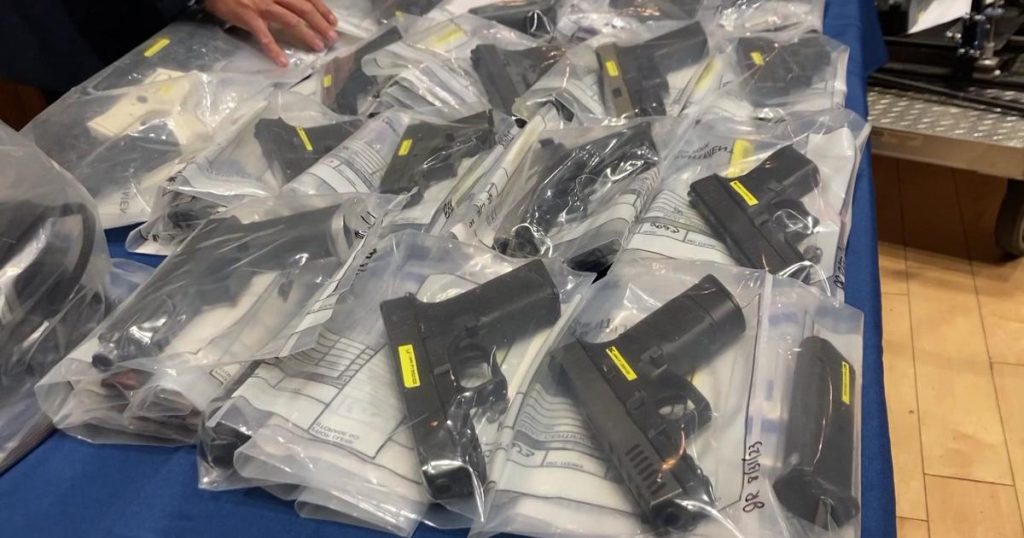The Supreme Court is set to hear arguments on Tuesday regarding the Biden administration’s efforts to regulate ghost guns, unserialized firearms that can be assembled from kits. The challengers, a group of firearms owners, gun rights groups, and manufacturers, are seeking to invalidate the regulation that subjects ghost guns to the same requirements as commercially made firearms. The Biden administration argues that striking down the rule would give criminals, minors, and others illegal access to these kits, leading to an increase in gun violence.
The regulation in question clarified the definition of “firearm” in the Gun Control Act of 1968 to include weapon parts kits that can be assembled into operational firearms. The measure aims to address the surge in crimes committed using ghost guns, which are difficult to trace due to the lack of serial numbers or transfer records. By requiring manufacturers and sellers of ghost guns to be licensed, mark their products with serial numbers, run background checks, and maintain transfer records, the regulation aims to make it more difficult for prohibited individuals to obtain these firearms.
A group of major cities has supported the regulation, citing a decrease in ghost gun recoveries in their municipalities as evidence of its effectiveness. The gun owners, advocacy groups, and kit manufacturers who sued the Biden administration argue that the ATF’s clarification exceeds its authority by changing the definition of a firearm to cover kits. They argue that any changes to the regulation of privately made firearms should come from Congress, not the ATF.
The Supreme Court previously allowed the Biden administration to enforce the ghost gun rule while a decision on its legality is pending. Chief Justice John Roberts and Justice Amy Coney Barrett joined the three liberal justices in a 5-4 decision to halt a district court order that struck down the measure, indicating they may be key justices to watch in the upcoming decision. The high court will consider the ghost gun rule after invalidating a separate measure banning bump stocks, ruling that the ATF exceeded its authority in issuing the ban after a mass shooting in Las Vegas.
The challenge in the case known as Garland v. VanDerStok focuses on whether the ATF exceeded its authority in issuing the regulation in 2022. The Biden administration argues that the rule simply ensures that ghost guns comply with the same administrative requirements as commercially made firearms. However, the challengers maintain that the ATF’s clarification is not consistent with the Gun Control Act and risks upending the regulation of popular semi-automatic firearms. The Supreme Court is expected to issue a decision on the legality of the ghost gun rule by the end of June 2025.


